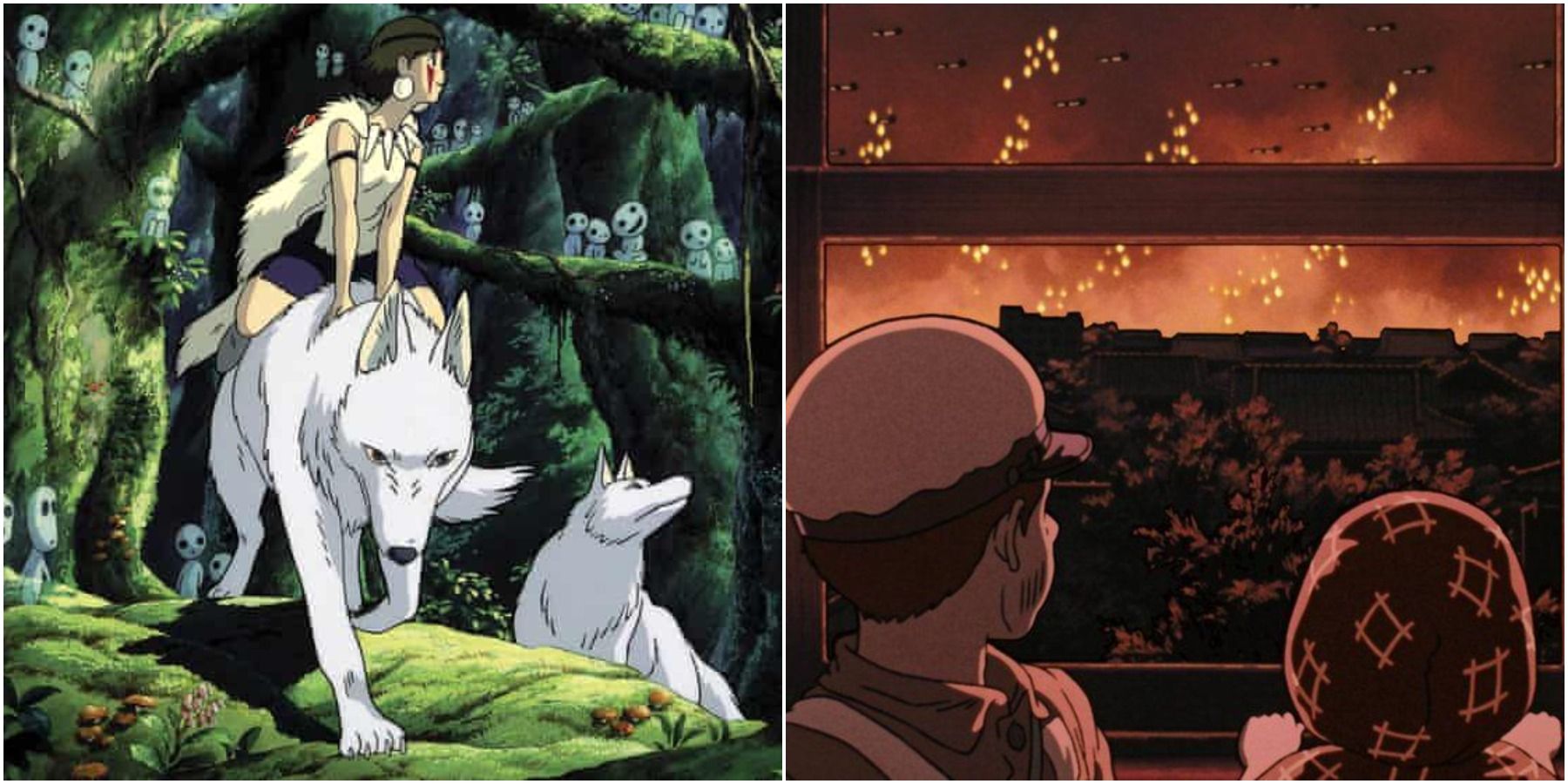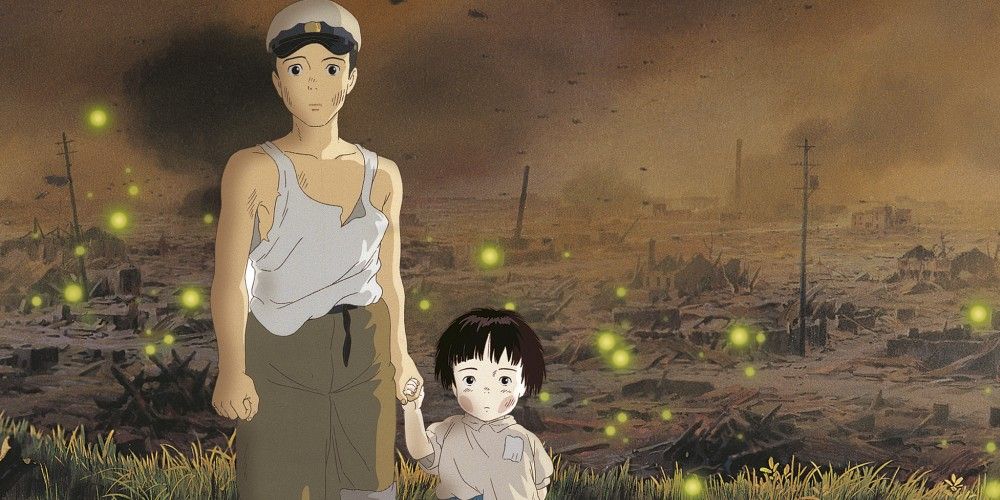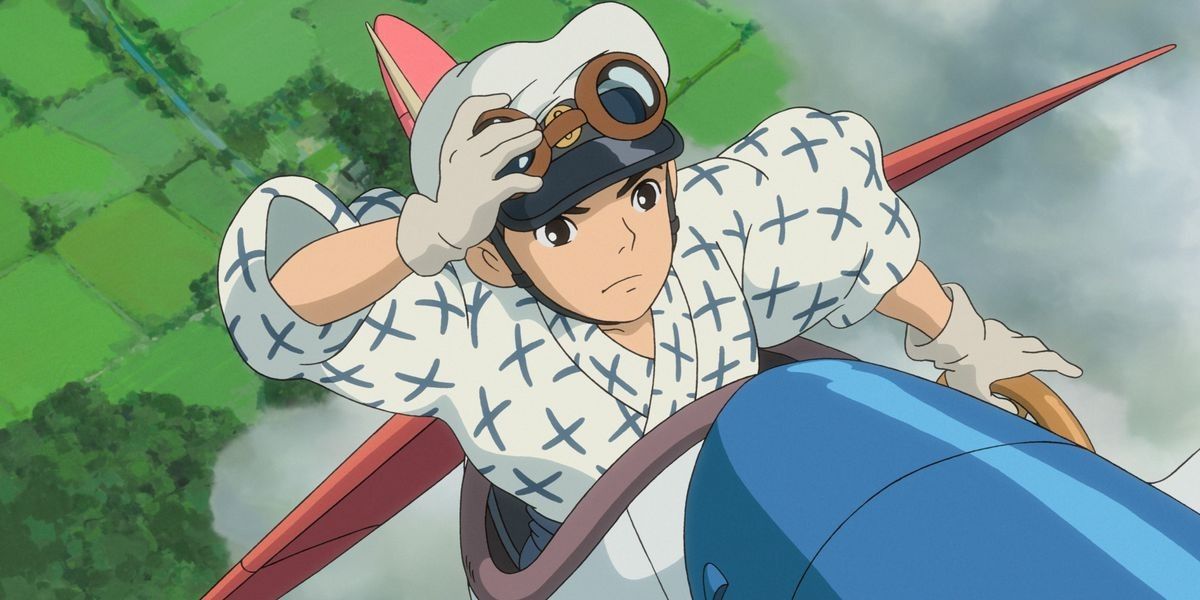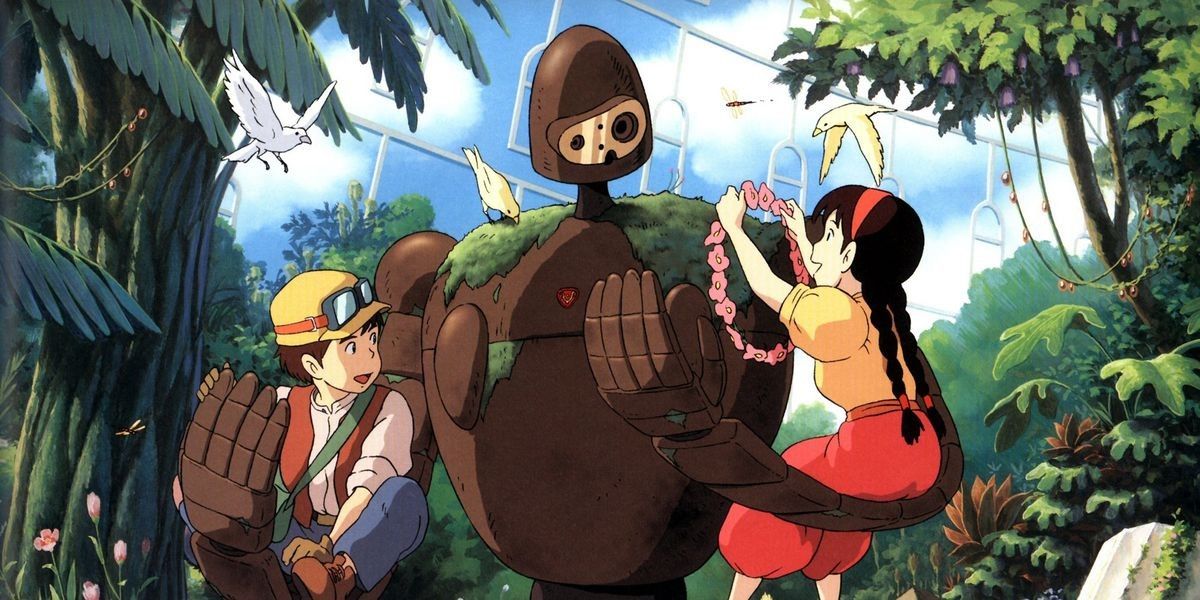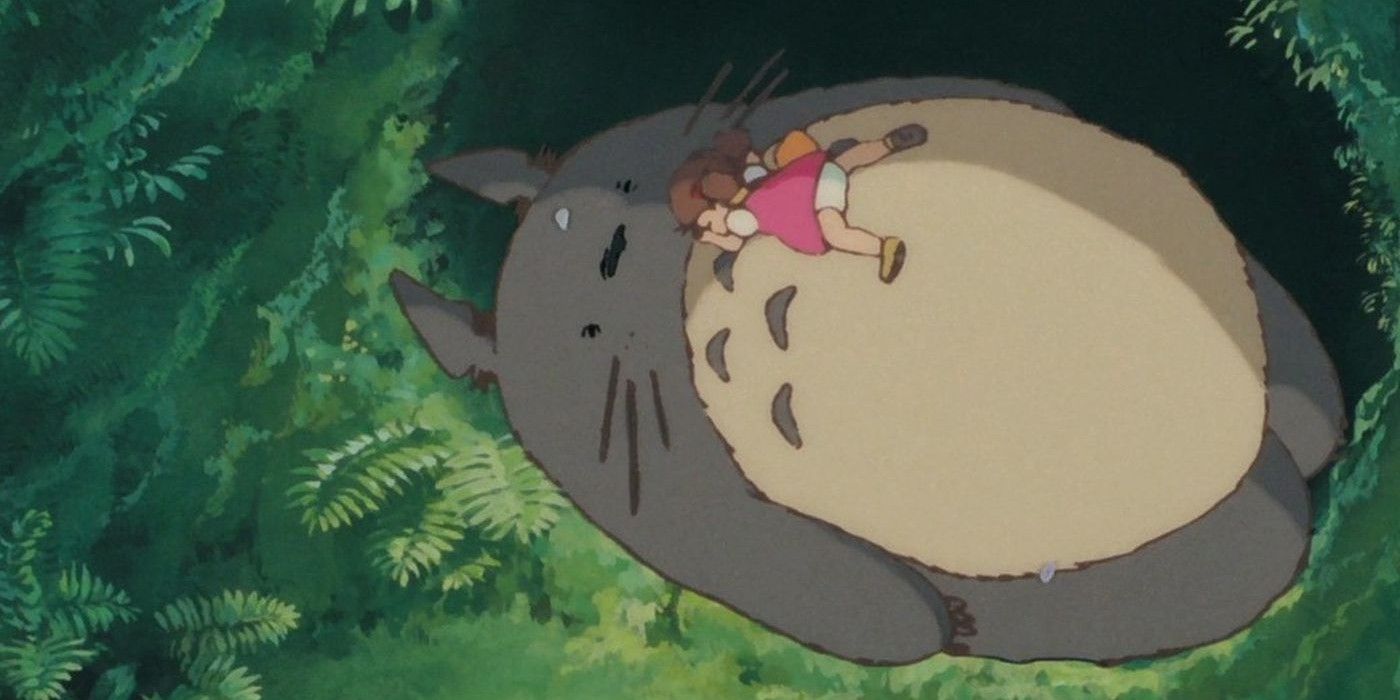Hayao Miyazaki is one of the most famous animators in the world, producing Studio Ghibli which created critically acclaimed anime films like My Neighbor Totoro, Princess Mononoke, and Spirited Away. The man does not shy away from teaching anti-war and environmentalist sentiments in his work, with the movies often delving into animism and the promotion of empathy for other beings. A closer look into his work shows even more though, an exploration of Miyazaki's thoughts on industrialization, the value of labor, and modernization.
Fans do not have to just look at and interpret the movies, though, as Miyazaki has been open about his political views in interviews. He is actually quite critical of politicians and cynical when it comes to the nature of capitalism, patriotism, and Japan's Constitution. In a 2013 interview with Neppu, Miyazaki described his political journey, from childhood to adulthood.
Miyazaki's Young Life
Due to the time he was born, Miyazaki lived deeply rooted in the consequences of war. He was born in 1941, four years before the American bombs dropped on Hiroshima. In his interview, Miyazaki described that even as a child he felt the war was stupid. He said, "I came to truly hate Japan, thinking I was born in a country that did stupid things." While the war ended when he was very young, Miyazaki did say he remembers the air raid that burned his town. He also remembered feeling humiliated when Japan lost the war. He read a lot of war books and studied war stories, such as The Machine Gunners. It was around the time he read that book that Miyazaki said he realized, if he was born earlier, he likely would have been a patriotic military boy. He described that people did not really know what war was until they were about to die, and that is why so many volunteered.
The father of Miyazaki produced parts of warplanes during World War 2. Miyazaki described his father as a nihilist and realist, which influenced how Miyazaki saw the war and Japan. Apparently, right after the war, Miyazaki's father immediately became friends with some Americans and would invite them over to their place.
As Miyazaki grew up, he said that he never wanted to sing Japanese songs and was ashamed of the imperialism of his homeland. However, in his 30s, he re-examined Japan after traveling a little through Europe and found that he loved it, though not in a way a patriot would claim. He loved the environment and the nature of the islands. "I thought Japan would be a truly beautiful country," Miyazaki said, "if it was without people." He grew to believe the land had tremendous power.
Miyazaki's Political Standings
Miyazaki believes that too many politicians do not have firm opinions or a historical consciousness. "They determine policies without any real study of the issues, but rather with spontaneous ideas or by listening to people who say superficial things," he said. He also likes certain aspects of Article Nine of the Japanese Constitution, the one that renounces that Japanese people can go to war or use force to settle international disputes to a certain degree.
Japan has self-defense forces and Miyazaki said that he is impressed by how they help people during disasters. He believes self-defense should be Japan's focus, never starting a war, especially since their county has so many nuclear plants. He mentioned that he used to admire neutral countries like Sweden and Switzerland, but reality proved that even those nations have armaments. He also believes that Japan should apologize and provide compensation for certain past deeds, such as what happened with comfort women, who were sex slaves of the Japanese Imperial Army during World War 2. In terms of territorial disputes with other nations, Miyazaki believes in dividing territory or managing the land collaboratively.
Miyazaki has a lot of thoughts about Japan's economic structure as well, believing that it is the most important thing to change. "We lose feelings of reality when we work for the numbers," Miyazaki said. He disapproves of the market-oriented system, believing that it denies a spirit that makes things truly our own. Miyazaki wishes for a world where people know to sew, make a fire, and cook their own food and find peace and meaning in it rather than what the economy views as unpaid labor. Miyazaki hates that the economy has a stranglehold on people experiencing "real things" as they usually work and then have to decompress from work each day in a cycle.
In his interview, Miyazaki said that people should shift their attention to interesting jobs, spending time with friends, and family instead of focusing too hard on the future. As an example, he described the joy of opening a daycare nursery at this work. He said that while the future could be grim, new lives should be celebrated and loved. On that name note, he did mention that Japan should let its population shrink. He believes the adequate population for the county is 35 million, while the country was at 100 million at the time of the interview.
Miyazaki's political standings do not exist just in the bubble of Japan. He was also a strong opposer of the United States' war with Iraq. In fact, he did not come to the United States in 2003 to obtain an Oscar for Spirited Away because of this position. He told the LA Times that he did not want to visit a country that was bombing Iraq. It was due to this that Miyazaki did not think American audiences would like Howl's Moving Castle, as that movie's war was reflective of the war with Iraq.
Politics In His Movies
Studio Ghibli movies, due to their fame, have been studied a lot for their messages, symbolism, and themes. Those that have studied the themes and messages of the films are likely not surprised by Miyazaki's politics. Grave of the Fireflies showed the cruel decay of children's lives after a bombing from World War 2. Princess Mononoke showed a war between man and nature and showed how it doomed both sides. Pom Poko told the story of city development through the eyes of raccoon dogs who died out as their resources were taken from them.
Nearly all the movies show Miyazaki's love of Japan that is uniquely his own, one that sees the sacredness of the land, a land without overcrowded cities. It also shows hints of his ideal economy, one that romanticizes cooking, cleaning, and creating art. His movies show a vision of what things could be, and due to their popularity, it is safe to assume a lot of people find comfort and entertainment in such a world possibly existing.

